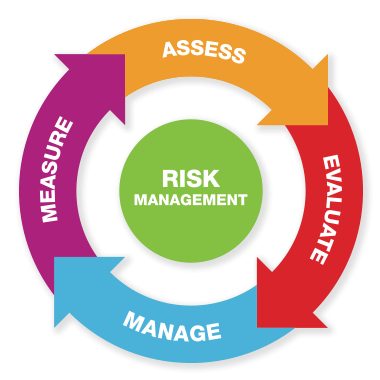
At Community Action Suffolk, we recognise the important role that voluntary and community sector organisations play within society and the great contribution they make. Now more than ever, they play a vital role in taking care of the needs of our society that are perhaps not covered by other sectors. The number of food banks that have developed over the last month providing a much needed service to our communities; the on-line support forums; the telephone helplines; all as a result of the latest Covid-19 crisis.
As part of our service we offer free advice and support on a range of issues, such as:
- Setting up a new charitable organisation
- Helping to decide upon which legal form to adopt and how to go about this
- Ensuring you have the correct policies in place
- Helping to draft your governing document to reflect your organisational aims and objectives
- Help with trustee recruitment, retention and succession planning, as well as helping to resolve any trustee issues that you may be experiencing. N.B. at present due to the pandemic we do not have any Trustee training courses booked, but we have the online training course, which you can access and complete. Please visit our ‘CAS Learning Zone’ page and select ‘online learning’
Our Specialist Business Support Officer Sabrina Ward will be going LIVE on our CAS Facebook with a Q&A sessions to talk about issues that local organisations are facing. Supported by other CAS colleagues, these sessions give you an opportunity to ask your questions and either receive a reply immediately or one of the CAS team will come back to you shortly after the event. Different topics discussed each week.
Community Action Suffolk Healthcheck
An online tool for trustees and other staff to assess the internal processes of their organisation, to determine whether they have the correct policies and procedures in place, whilst adhering to good practice. Whilst the majority await the return to normal service, now may be a good time to update your organisational policies and practices and work on any other organisational areas, which may have been highlighted by the Healthcheck.
The Healthcheck is a free tool, which is easy to complete, that will help you determine if you are operating as effectively as possible.
Business Continuity Planning
Business Continuity Planning (BCP) as an idea gained much attention in the early 2000s due to disasters such as the World Trade Centre in the USA. In the face of disaster or other external factor impacting on operations, then how would the core business function continue?
Our recent CAS survey to the sector to see the impact of Covid-19 highlighted that a number of organisations did not have this in place.
There are three key steps in developing a BCP. These are:
- Prioritise which critical functions are required to be continued immediately or in the short and medium-term.
- Assess which of the prioritised functions are feasible and to what extent can they be undertaken. Taking into account constraints such as Government mandated regulations or other external function that has an impact on your operations.
- Execution of the plan. Bringing about the necessary changes within the organisation to ensure continuity should another pandemic or other occur.
Business Continuity Planning (BCP) involves defining any and all risks that can affect organisations operations, making it an important part of your organisations risk management strategy.

Please click on link to get to a template of a risk register from NCVO:
Once the risks are identified, the plan should include:
- Determining how those risks will affect operations
- Implementing safeguards and procedures to mitigate the risks
- Testing procedures to ensure they work
- Reviewing the process to make sure that it is up to date
BCPs are an important part of any organisation. Threats and disruptions mean a loss of revenue and higher costs, which leads to a drop in profitability. Organisations can’t rely on insurance alone because it doesn’t cover all the costs.
The introduction of the BCP to your existing policies will ensure you have a blueprint for working to if your organisation is unable to run as per normal in the event of any disruption.
If you would like help with developing a BCP, then please contact Jayne Vaughan on [email protected] or email [email protected]
Meetings
- AGMs and other meetings: postponing or cancelling meetings
Coronavirus is having a major impact on charity events and the government’s health advice has lead to charities having to cancel or postpone their AGMs and other critical meetings.
As Trustees you should record this decision to cancel or postpone the meeting to demonstrate good governance of your charity. This is particularly important if it is not possible to hold your AGM, which may make it difficult for you to finalise your annual reports and accounts.
Wherever possible, we would ask you to try to get your annual reports to us on time. However, where the situation impacts on the completion of annual returns and accounts, charities with an imminent filing date can email us.
Please include your charity name and charity registration number when you email us: [email protected]
- Holding meetings online or by telephone
In the current situation, it is difficult to hold face-to-face meetings. Some charities have clauses in their governing documents that allow them to meet virtually or to use telephone facilities, so we advise trustees to check their governing document and see if they can make amendments themselves to facilitate changes as to how or when meetings are held.
Where there is no such clause in your governing document and you decide to hold meetings over the phone or using digital solutions, we will understand but you should record this decision and that you have done this to demonstrate good governance of your charity.
Annual Returns
Charities that are due to submit an annual return now or in the near future and need an extension to their deadline due to the coronavirus pandemic should contact the Charity Commission, and ask the regulator for a filing extension.
The Commission has said that during the Covid-19 pandemic, “the charity sector will face challenges of looking after its staff, volunteers and trustees who may fall ill, have to self-isolate, or have to look after loved ones”.
It added that the sector has a vital role to play in looking after its beneficiaries, many of whom will be amongst the most vulnerable during this public health emergency.
Its statement said “We want to assure charities that our approach to regulation during this period will be as flexible and supportive as possible. Charities’ primary interest, and ours, must be looking after the public and the communities that we serve”.
When contacting the Charity Commission, please include your charity name and charity registration number when you email us: [email protected]
Staff: Job Retention Scheme
The Government Job Retention Scheme came into power in light of the Covid-19. This scheme allows charities and businesses to put employees who would otherwise be unemployed as a result of the coronavirus on ‘Furlough’. This means that the employee does not work and the state finances 80% of their salary up to £2,500/mth. Employers have the opportunity to top this up to 100%.
The way to make a claim is online – the service should be simple to use and any support you need available on GOV.UK.
If you require further information or support contact Jayne Vaughan, Development Officer – VCSE Organisational Support, on 0777 5907828 or email: [email protected]
Risk Assessments
Future working within the threat of Covid-19, means that there is a requirement for organisation to undertake additional risk assessments pertaining to Covid-19. Risk assessments can help an organisation identify potential threats and put in place practices to mitigate the impact of these threats. It is not intended for it to be an additional burden for committees/ boards, but an opportunity to assess their current governance structure and practices and see how they might be ‘challenged’ should another outbreak or similar happen again.
NCVO has a risk assessment template that you can adapt for your organisation:
ACRE have also produced templates for use by village halls and community buildings, which may help you in developing a framework and the issues you may need to consider.